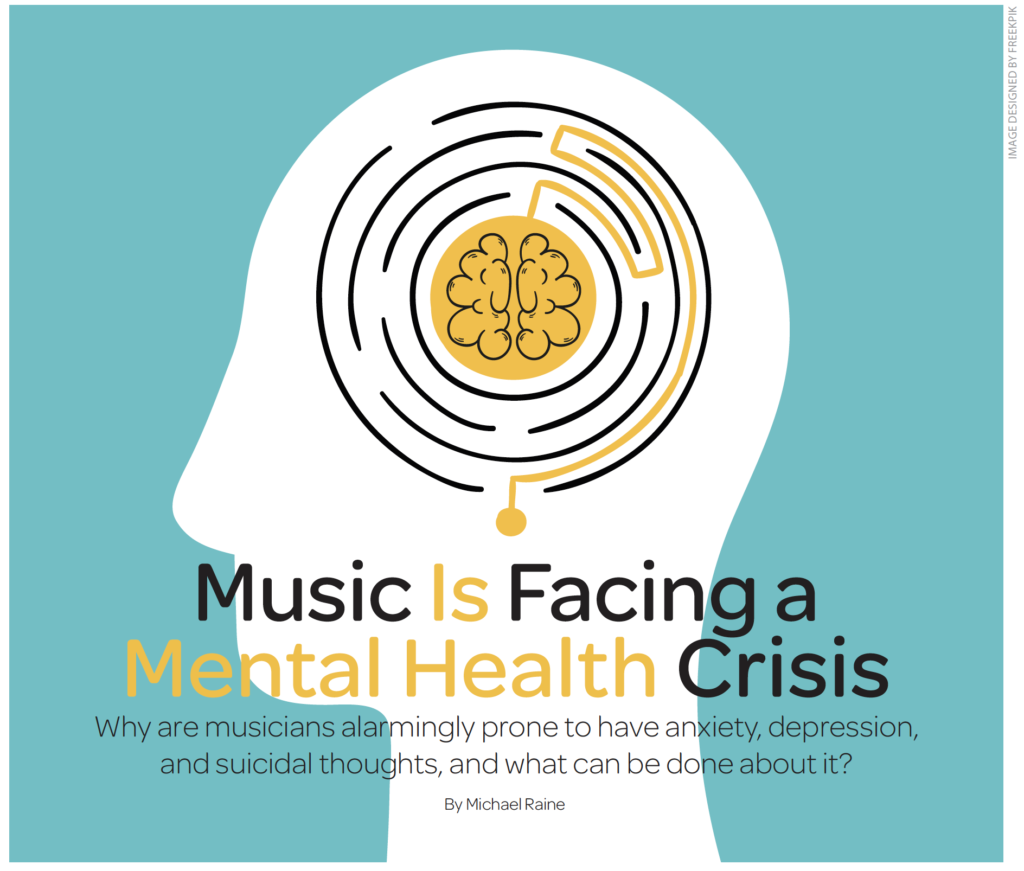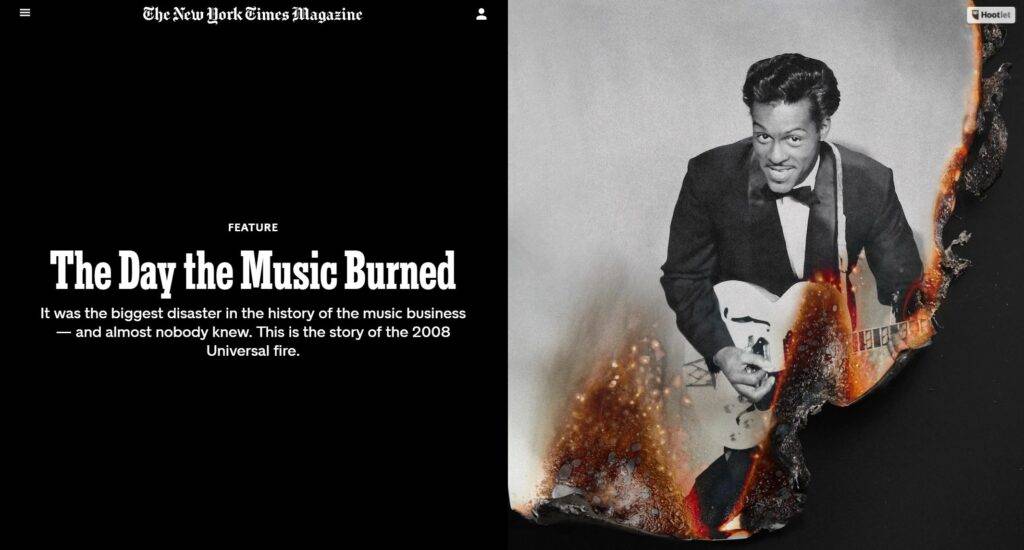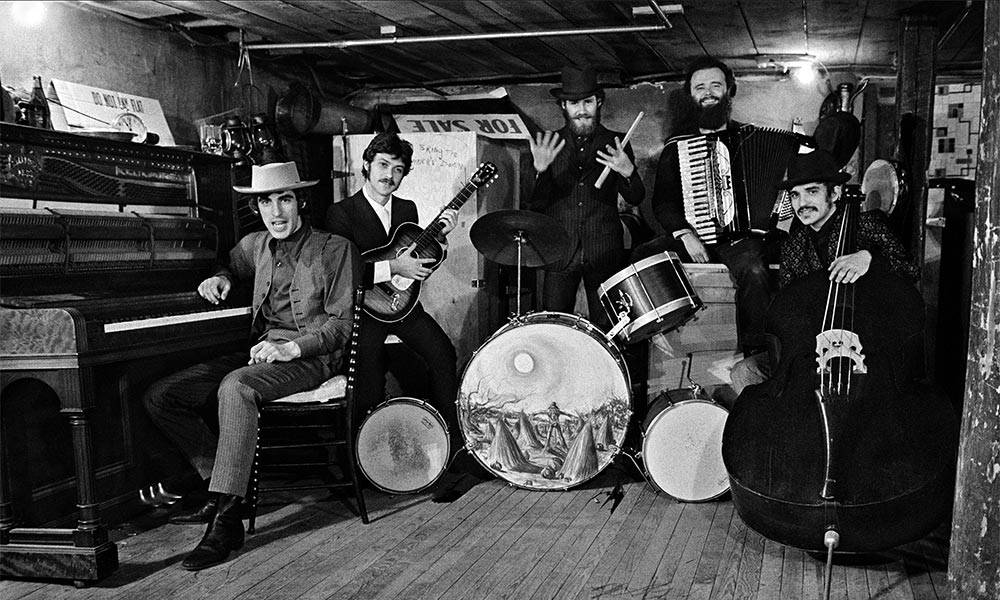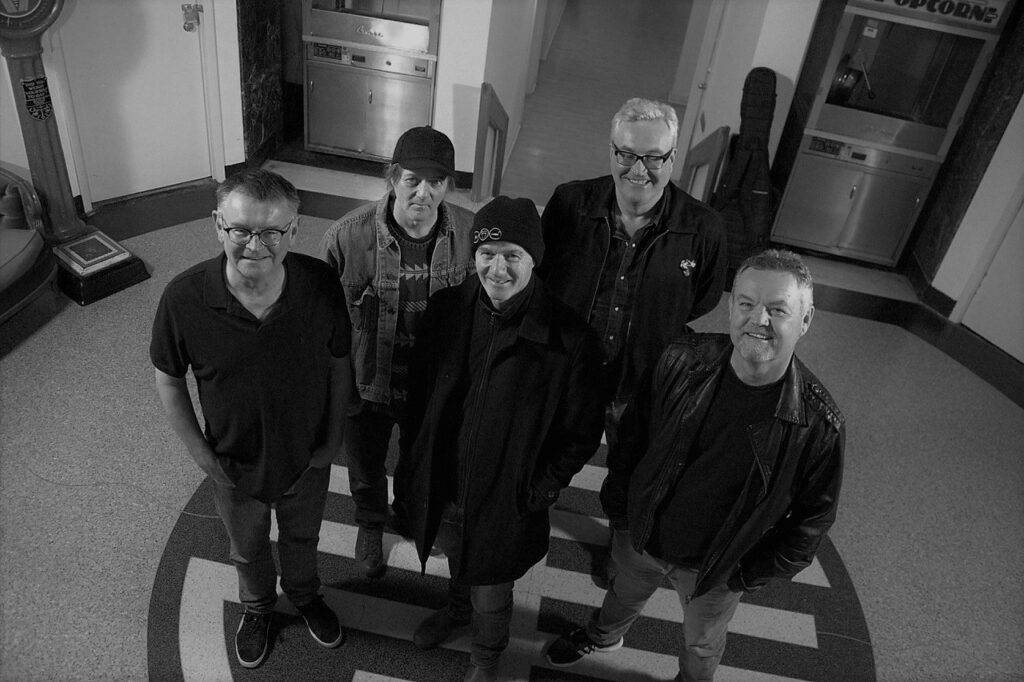
Music Is Facing a Mental Health Crisis
This article originally appeared in the September/October 2019 issue of Canadian Musician magazine.
The life of a professional touring musician is a recipe for mental illness.
Money is tight while they work long and weird hours, travel incessantly, are isolated from their friends and family at home, and have ample access to drinks and drugs. They write, record, release, and promote, and then repeat the cycle over and over again. And now, more than ever, the industry demands constant content, lest they are forgotten in the ocean of songs hitting Spotify every Friday. But then they get in the van and, especially in Canada, drive absurd distances between low-paying gigs for a tour they likely had to book themselves.
There are a million other tasks, big and small, that today’s independent and even label-signed artists need to take care of each week. It can feel like the hamster wheel never stops and you have to keep it going just to survive. So yeah, little wonder musicians are reporting alarming levels of anxiety, depression, and suicidal thoughts.
It’s long overdue that we start talking about and facing these issues head-on, and thankfully, there are things musicians can do for themselves and each other, along with resources and professionals being increasingly more available to help.
Let’s start with how bad the issue of anxiety, depression, and suicidal thoughts is in the musician community. Know this: it’s bad.
The most comprehensive study on it was commissioned in 2016 by Help Musicians UK (HMUK), a charity organization that’s been helping British musicians in their times of need for almost a century. Researchers surveyed over 2,200 musicians and then conducted interviews with select participants to get a deeper understanding. Entitled Can Music Make You Sick? it’s the largest known academic study ever on the topic and its results were alarming. Seventy-one percent of respondents reported having panic attacks and/or high levels of anxiety and 69 percent reported suffering from depression, which is three times higher than the general British public. Adding to the concern, 57 percent of those who struggled with their mental health did not receive treatment, and over half said it was difficult to get help.
Reinforcing those results is a survey commissioned earlier this year by Swedish digital distribution platform Record Union, which surveyed about 1,500 musicians. It found that 73 percent of independent musicians struggled with some form of mental illness, with anxiety and depression being the most common. That number rose to 80 percent for indie artists between the ages of 18 to 25. Among Record Union’s survey respondents, fewer than 40 percent had sought professional treatment and more than half said they self-medicated with alcohol and drugs or other means. Tellingly, only 19 percent felt the music industry was trying to make conditions better for artists’ mental health.
Here in Canada, the East Coast Music Association (ECMA)’s 2018 Mental Health Survey had some extremely concerning results. Most alarming, of the 50 respondents, 20 percent reported suicidal thoughts in just the past month. The Canadian average is 3.3 percent in the past 12 months. As well, half of the ECMA’s respondents reported being concerned, either presently or in the past, about their own drug and/or alcohol consumption and 26 percent said they’d attempted suicide at least once in their life.
So yeah, it’s a bad situation. But why?
The HMUK study identified four main areas of concern that explain the worrisome rates of anxiety and depression: 1) money worries, 2) poor working conditions, 3) relationship challenges, and 4) sexual abuse/bullying/discrimination. Most professional musicians can probably identify with at least a couple of these.
“I have about 12 years as a professional musician – whatever that means – but I’d been touring in bands for almost 10 years before that – like awful punk bands and sleeping on floors and doing that whole thing. So, I am coming up on over 20 years of touring now and it’s one of the most rewarding experiences you could ever have, in my opinion, but it’s also really hard on your mind and body,” shares Menno Versteeg, frontman for the band Hollerado and head of one of the hottest Canadian indie labels going, Royal Mountain Records, which boasts a roster that includes Mac DeMarco, Alvvays, PUP, and Orville Peck, among others. “I don’t mean to compare this [to the military] at all, but you do see a lot of musicians who have some sort of tour PTSD. They come home from tour and it’s hard to fit back into your regular life.”

Earlier this year, Versteeg’s Royal Mountain Records did something no other Canadian label, indie or major, has done: it set up a mental wellness fund that provides each act on the roster with $1,500, non-recoupable, to confidentially spend on mental wellness or addiction recovery. Versteeg says that “without a doubt,” his own experiences as a touring musician inspired him to create the fund.
“[Touring] affects your relationships and your day-to-day life, but I think you just kind of accept that that’s the way it is and that it’s tough. If you’re touring 250 days a year like a lot of the bands on Royal Mountain did at the start and some of them continue to do – it’s hard to really get your start as a band unless you put in that kind of effort – it takes its toll on the way the band behaves in front of each other and the way that you fight with your bandmates and with people who aren’t in your band but who are in your life in other ways,” continues Versteeg. “It’s a tough lifestyle, but I think it is just kind of taken for granted that that comes with the territory. To some extent, it does come with the territory; you know what you’re signing up for, but I think being aware of it to some degree can enable you to take active steps to find coping mechanisms that make it easier.”
The psychological impact of the musician lifestyle comes as no surprise to Amanda Power, the executive director of the Unison Benevolent Fund. Unison is like HMUK for the Canadian music industry, providing counseling services and emergency financial relief to Canadian musicians and industry professionals in times of need.
“From discussions we’ve had with members of our music community, a few factors are quite universal. For those on the road, touring can be a major contributor to mental health challenges. Being disconnected from friends and family, working odd hours, and constantly being surrounded by alcohol all takes a toll on mental wellbeing,” says Power. “In addition, financial instability and pressures to succeed play a huge role. Another factor is the ways in which the music industry glorifies overworking or over-partying, with little attention paid to taking breaks. We need to focus more on self-care. This is a cultural shift we’re trying to address through our programming at Unison.”
Over the last few years, it does seem there has been a cultural shift in the public conversation around mental health. Through initiatives like Bell Let’s Talk Day or the Canadian Mental Health Association’s Mental Health Week, politicians, artists, athletes, and common Canadians are talking more openly and publicly about their own experiences. Nonetheless, musicians often feel the need to keep up pretenses and be #killingit.
“At least for artists, we’re often displaying the highlights and the good times, but the behind-the-scenes can be very grueling and exhausting. I think that needs to be brought to the forefront, or at least the general public needs to be more aware of this and the artists themselves can’t shy away from this reality,” says rising soul and hip-hop artist TOBi. That’s why he and his manager organized an event in August for Toronto-area artists focused on their mental health. “I am an artist and I’ve lived with my own set of mental health challenges and issues in the past and I’ve learned how to deal with them because I had the means to do so. Since I was a teenager, I’ve lived with a lot of anxiety and panic and things like that. I didn’t know how to deal with it, so I turned to my art as a form of coping. I think a lot of artists do that as well, and while it is a good form of coping, it may not be sustainable, depending on what the external variables are.”
As the HMUK study mentions and Power at Unison reinforces, financial instability can intensify a lot of mental health problems. There are few professions as financially precarious as being a musician. Pay can be sporadic and unpredictable, and there are no benefits like dental insurance or money for therapy and prescriptions.
As Versteeg points out, musicians aren’t afforded the same security as those working around them. Most managers, agents, or label executives he knows who have been at it for a decade or more are able to afford a home or pay steady rent; they have families and dental insurance – essentially, the secure lifestyle associated with being a “professional.”
“Even if you have a mid- or entry-level job at a big label like Universal or something like that, when there’s something you need like a [tooth] filling, you can afford to go get it,” adds Versteeg. “It’s such a cycle, but all elements of it play a factor. If you’re someone with anxiety and you’re going on the road and facing crowds every night and you know the way you perform is being judged and you’re subject to criticism and all these things, it exacerbates anxiety. And you know that you probably can’t afford to go get treatment for that, and you might even be worried about just paying the rent when you get home. And then if you add in the fact that you have a toothache while on tour and you’re feeling this nagging pain that you know you can’t do anything about, all that stuff makes it worse. I know so many musicians with anxiety who, like, hurt their hand while on tour and it makes their anxiety worse because they think they might not be able to play. So, it’s just a big, vicious cycle.”
Versteeg is right, obviously, that musicians are often expected to accept a precarious situation. It’s in part, he feels, because being a musician is often not regarded as “real work,” even within the industry and by musicians themselves.
“Even if a band is not making a lot of money, you’re out on the road and you might drive for 10 hours in a day, so you’re doing the same job that a trucker would do. Then you get out and you set up a miniature store in a venue and then you move a bunch of stuff and sometimes you fix some gear,” he explains. “You know, you’re doing a bunch of things that would be considered a ‘real job,’ and then for 40 minutes of the night you get to play music to a bunch of people and then you go back to working. It’s just funny that because playing music is fun and that is what you consider the ‘job,’ but the job is so much more than that.”
In her experience at Unison thus far, Power says it’s common for artists themselves to not value their work. “The problem with labeling music-making as ‘not a real job,’” she says, “is that it makes it easier to dismiss the hard work that goes into being a musician. It makes it easier for people to ask artists to work for ‘exposure’ or to get paid in beer, and also makes it harder for musicians to demand fair treatment.”
This industry relies on the artists making music. Without the songs, there aren’t labels, managers, agents, publicists, music rights organizations, or any of the other companies and organizations employing people in the business of music. Musicians are the business, so why aren’t they protected? Why is it accepted that they live a life that almost pushes them towards mental illness? Does the rest of the music industry, the “professionals,” owe them some protection?
“One hundred per cent, I strongly believe so,” says TOBi, who also has background counseling teenagers. “Not just because it’s the artists’ work that generates the revenue for these industries to survive and thrive, but just strictly from a humanist perspective. It just makes sense to have an allotted fund that goes towards maintaining the mental wellness of artists. It doesn’t necessarily have to be therapy or counseling, but it could be anything that can benefit the wellbeing of an artist’s mental state. There should be an allotted fund. That is why I am so happy to hear about the Unison Benevolent Fund, but they’re a not-for-profit organization, so they rely on grants and donations as well, but corporations should be invested in this, not just for their bottom line.”

Versteeg wants to see other labels and organizations take inspiration from the mental health fund he has set up for Royal Mountain’s artists and then do it bigger and better. “I think it’s kind of the responsibility of everyone in the industry to level the playing field a bit for the artists who are really the basis of everything the music industry is able to do,” he says. “It pains me sometimes that I feel like that is forgotten – that we treat the artists like, ‘Well, you should be happy or feel lucky that you get to do this – this is the dream job.’ Whereas, everyone else, their teeth aren’t rotting out. So, if everyone puts just a little bit of their money, just like a small sliver, into a way to make sure that artists get basic healthcare, I think that is a goal we should be striving towards.”
Really, it’s a hard thing to argue with once you acknowledge the scale of the mental health problem in the industry, and simply the decent and right thing to do. Yes, it’s easier said than done for many companies with tight budgets, but that should be the goal.
Errin Williams, the clinical therapist who oversaw the ECMA’s survey and ran a mental health workshop at East Coast Music Week 2019, agrees that it’s vital to provide better supports for artists. “Although it is not a typical employer-employee relationship, I would like to see companies, individuals, and organizations who profit from the creativity and work of musicians, as well as music industry associations or other larger member-based organizations, offer comprehensive medical insurance for musicians so they are able to see a private therapist if they are having a tough time accessing hospital-based services, afford medications, and be better able to take care of their health, overall.”
We’re all familiar with the insidious image of the “tortured artist.” It’s time to stop glorifying mental illness in the arts. It’s time to truly believe that being a professional musician is a “real job” and then treat it like one. It’s also time for musicians to help themselves and each other.
“Great pain makes great art. There is no doubt about it. But, you see the artists who live in great pain their entire life and they don’t live very long. That is just what’s up. There is only so much of that that someone can handle,” says Versteeg, speaking from experience. “So many of my peers and myself have struggled with that. But knowing that if you want to continue to make art and share your art with the world that you don’t have to live in that pain? You know, you’re still going to experience it in your life, that’s for sure, and bad things and emotional things and scary things are never going to stop in this world we live in. But finding better ways to cope can make your life a little easier on you and everyone in it. That’s what I’ve noticed.”
Unison Is There for You

Since 2011, the Unison Benevolent Fund has been a vital lifeline for the Canadian music community. It’s funded by individuals and music industry organizations and is the only charity in Canada specifically addressing the mental health and emergency care needs of musicians and music industry professionals. It connects musicians with qualified professionals who can provide counseling and other resources to support individuals and their immediate families dealing with mental health, legal guidance, family and relationship counseling, or work-related concerns. Also, Unison provides emergency financial support for those recovering from an illness, injury, or other circumstances that leave them unable to work or in severe economic or personal hardship.
“People need to understand in our industry that all they need to do is ask for the help and they are going to receive it,” says Unison Executive Director Amanda Power. She urges professional musicians to get registered with Unison now and not wait until they need its services. Anyone can benefit from its educational resources on mental health, self-care, and other important topics. “Even if you don’t need it right now, you might need it five weeks or five years from now, or you might run into somebody who does need help and you’re educated. Once someone is educated about Unison, I always tell them: ‘Now it’s your responsibility to carry the message forward.’ We’re stronger when we stand together,” she adds. “We’re there 365 days a year and it doesn’t have to be a dire situation. That is another misconception about Unison. With counseling, let’s say you’re having health or nutrition challenges – you can talk to a nutritionist and get some advice from professionals if you call our counseling services. If you need access to legal advice, you can call the counseling services and get proper legal advice. If you’re having challenges with childcare or eldercare resources, you can call and get help with that. It’s not just for if you’re in a 911 situation and you’re going to cause harm to yourself or someone else. We’re there for every kind of situation possible. All you really have to do is say to yourself, ‘I need help but I’m not sure what I need to do, so I’ll call Unison.’ It’s really as simple as that.”
For immediate assistance, call Unison toll-free: 1-855-9UNISON (1-855-986-4766)






Responses